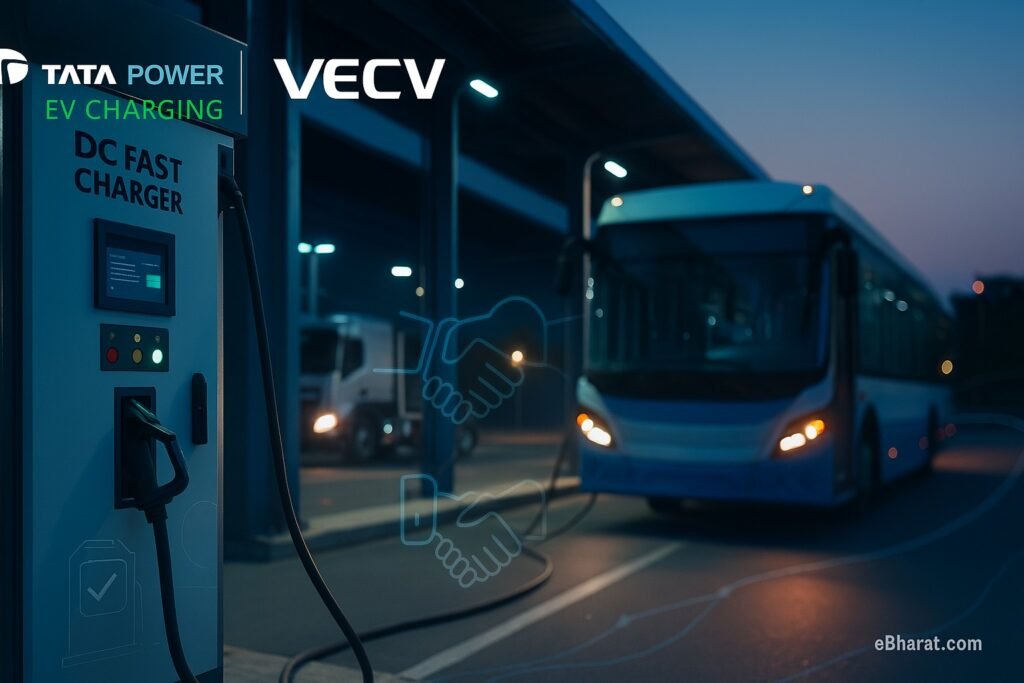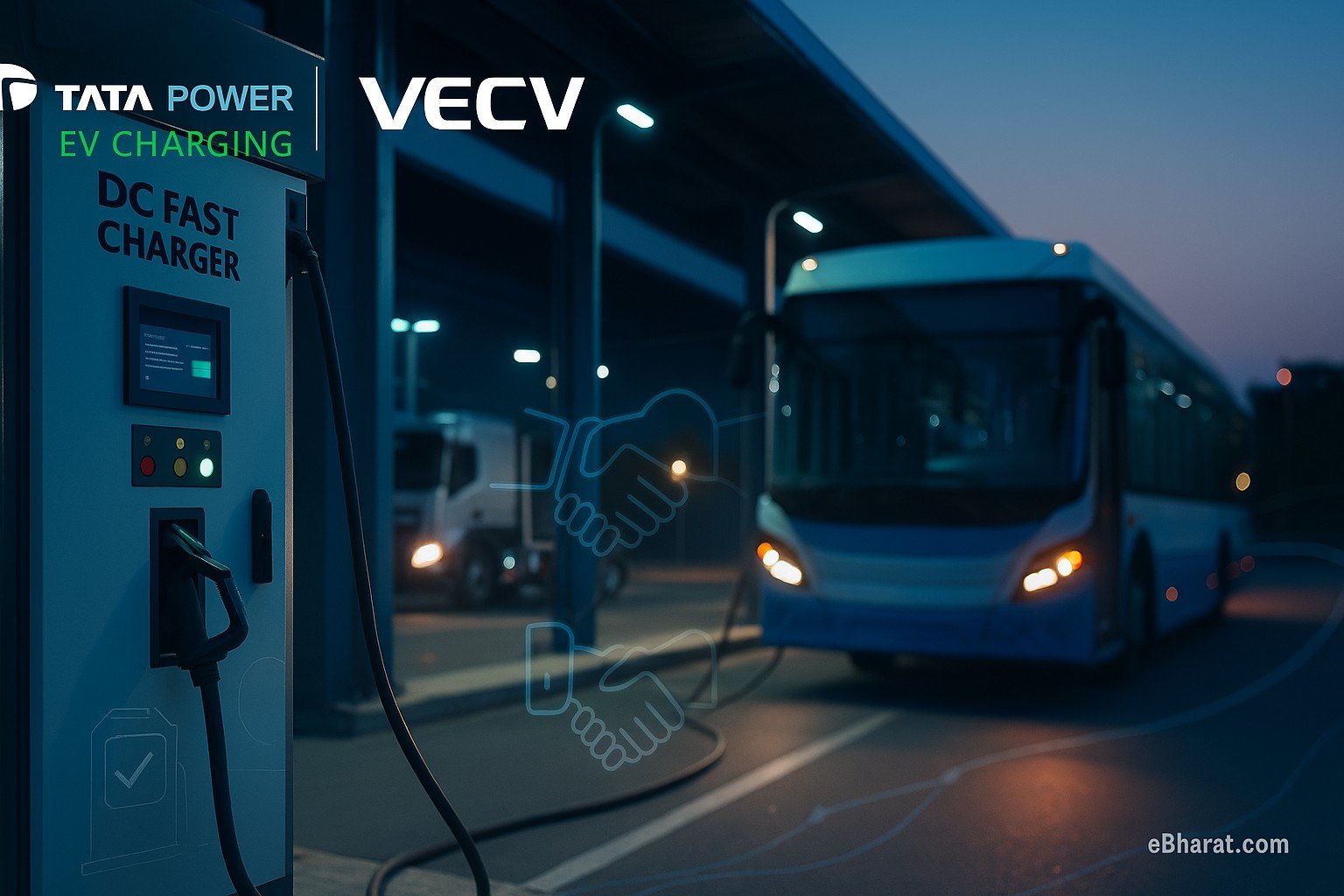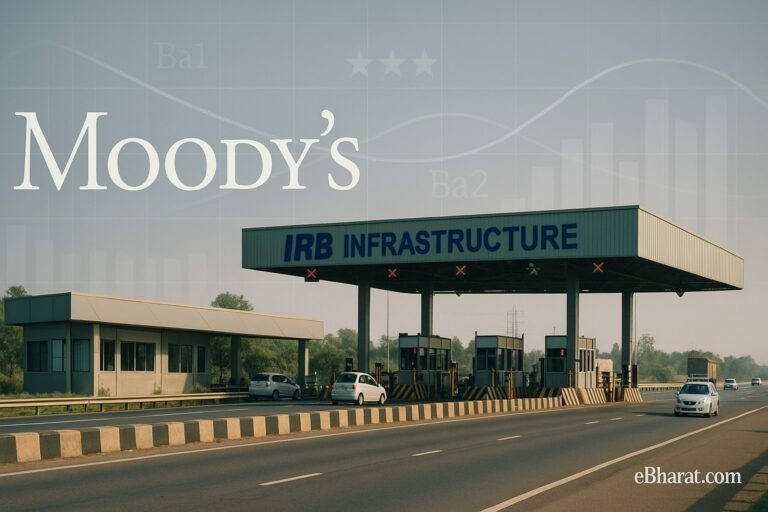
New Delhi | September 29, 2025 — eBharat Auto & Energy Desk
Filed on Sep 29, 2025, 16:45 IST via company announcement.
Tata Power EV Charging Solutions Ltd (TPEVCSL) said it has entered into a strategic partnership with VE Commercial Vehicles (VECV)—the Volvo Group–Eicher Motors JV—to speed up the rollout of charging and energy solutions for electric commercial vehicles (e-CVs) across India. The tie-up aims to support VECV’s fleet customers with depot charging, on-route top-ups along key freight corridors, and integrated digital services that help manage charging, payments, and uptime.
The companies did not disclose financial terms. According to the announcement, TPEVCSL will provide high-capacity DC fast-charging, site design and installation, O&M with SLA-based uptime, and access to its public charging network through a unified app/RFID experience. For larger depots, the partners plan to evaluate energy-management solutions—including demand management, battery-aware charging schedules, and options to source renewable power where viable. VECV will bring OEM integration, recommending charger capacities for its e-CV platforms and enabling vehicle–charger interoperability and diagnostics via secure data interfaces.
Partnership snapshot
| Item | Detail |
|---|---|
| Parties | Tata Power EV Charging (TPEVCSL) & VE Commercial Vehicles (VECV) |
| Focus | Charging infra for e-trucks & e-buses: depot, en-route, and public network access |
| Solutions | High-power DC charging; site design & EPC; O&M with uptime SLAs; payments/app integration |
| Energy layer | Smart load management; evaluation of renewable sourcing where feasible |
| Commercials | Not disclosed; roll-outs to be phased with fleet/customer demand |
Why it matters
- Fleet decarbonisation: Charging availability and predictable uptime are the biggest adoption barriers for e-CVs. A combined OEM–CPO (charging-point operator) approach can reduce total cost of ownership through right-sized chargers, lower energy costs, and higher asset utilisation.
- Network effects: Linking private depots to a roaming public network lets fleets optimise routes and avoid range anxiety during intercity hauls.
- Uptime and data: Integrated vehicle–charger telemetry allows battery-aware charging, better warranty outcomes, and data-driven maintenance—critical for commercial duty cycles.
- Policy tailwinds: Ongoing central/state EV policies, demand incentives, and green-power options support economics for early adopters.
What to watch
- Pilot locations & capacities: First wave of depots/corridors, charger power ratings, and the mix of private vs public access.
- Service levels: Published uptime guarantees, response times for field service, and energy-cost transparency.
- Digital stack: Single-window app/portal for driver RFID, route planning, payments, and consolidated invoicing for fleets.
- Throughput metrics: Sessions per charger, kWh dispensed, and utilisation on freight corridors once live.
- Scaling plan: Expansion to dealer networks, third-party logistics hubs, and potential financing/leasing options for depots.
Outlook
If execution matches intent, the partnership can lower adoption friction for early e-truck and e-bus fleets by bundling infrastructure, software, and service under one roof. Over time, corridor build-outs combined with smart-charging and renewable-sourcing options could improve operating economics versus diesel on select routes, helping e-CVs move from pilots to scale.













